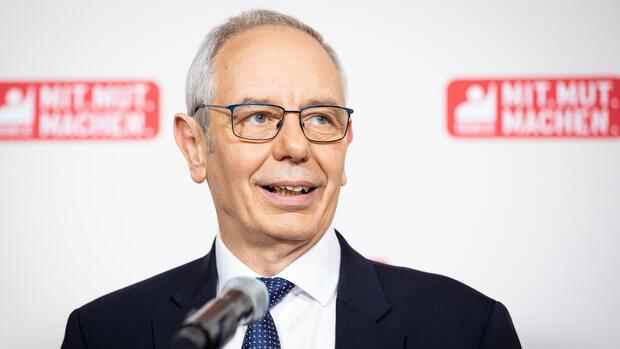Berlin A transformer is an electronic component that can be used to convert high voltage into less dangerous lower voltage. In the climate protection and energy transition debate, Michael Vassiliadis takes over the task of the transformer. The head of the Mining, Chemical and Energy Industrial Union (IG BCE) knows how to reduce high-flying political plans to a realistic level.
The 57-year-old can count the days on which Germany narrowly missed a blackout due to massive network problems. He considers it “daring” when politicians conjure up an accelerated coal phase-out and at the same time talk about security of supply. And in the “somewhat romanticized” debate about the climate-neutral restructuring of industry, he does not shy away from the question of where the huge amounts of hydrogen that are needed for this should come from.
For Fridays for Future and other climate activists, Vassiliadis is the perfect spoilsport. But the union leader cannot do otherwise. Because for the more than 600,000 members of IG BCE who work in the last remaining coal mining areas, in the energy sector or in the chemical, rubber or plastics industry, a successful and socially acceptable energy and climate change is essential, which secures electricity at affordable prices, a matter of existence.
“When political decisions call entire industries into question, then our members can rely on us to be there and not hesitate, that we will fight for their interests and not shrink from conflicts, that we will use our expertise and our strength and do the best for them get out, ”Vassiliadis called on Monday to the 400 or so delegates at the federal trade union congress in Hanover, which takes place every four years.
Top jobs of the day
Find the best jobs now and
be notified by email.
Most senior among the eight DGB union leaders
This Tuesday, the trained chemical laboratory technician and son of a Greek guest worker will stand for re-election for a fourth term. He has been at the head of IG BCE since 2009, making him the longest-serving of the eight heads of the unions in the DGB.
This means that he now has the thankless task of preparing the successor to DGB boss Reiner Hoffmann. Even within the trade union federation, Vassiliadis does not shy away from any conflict – for example on the controversial question of whether the required transformation fund for restructuring the industry should be fed solely with state or private capital. And unlike other trade unionists who called for more redistribution from rich to poor, Vassiliadis also urged a reform of the tax rate early on, because many of the skilled workers organized at IG BCE now fall under the top tax rate.
Vassiliadis has taken his own union through ups and downs. The politically resolved end to coal mining has meanwhile depressed membership numbers considerably. In terms of collective bargaining policy, the IG BCE is always innovating. For example, the chemical industry has introduced the first additional long-term care insurance covered by collective agreements.
The transformation, which is still talked about verbatim in politics, has long been in full swing in the IG-BCE sectors. Employees at the automotive supplier Continental are currently experiencing this, for example, where jobs are being cut and factories are being closed. Vassiliadis is the last one who would shut himself off to change. But from his point of view, it should not be carried out on the backs of the employees alone. That is why the trade unionist is campaigning for a reform of corporate co-determination and wants to overturn the supervisory board’s double voting right, with which the capital side can push their way through.
The SPD member should like the fact that SPD Chancellor Olaf Scholz will presumably soon rule in Berlin, who has an open ear for union concerns. Vassiliadis “partner Yasmin Fahimi sits for the SPD in the Bundestag. Especially in energy and climate policy, the new government will always find a loud warning in the IG-BCE boss.
Rich Germany has remained below its potential
In his keynote address, Vassiliadis said that wealthy Germany has remained below its potential in recent years. “At the beginning of this decade, the course for the future will be set again.” The trade unionist called for a socially responsible transformation code within which social partners, environmental associations, churches and politicians could shape change. This is a chance to get out of the ideological “trenches”.
IG BCE will work in companies and in politics for good work, higher collective bargaining coverage, more income equity, social security and a fair transformation. Politicians must keep the welfare state’s promise of security. And if the probable traffic light coalition wants to open the Working Hours Act as planned, then there will be “real, real trouble” with the unions – above all with IG BCE.
Vassiliadi’s greatest concern, however, is the location: if politicians do not soon set the framework for the climate-neutral age, companies will not invest. Vassiliadis recently told a small group of journalists in Berlin that one can already see how the industry in Germany is aging. That must change quickly. Because: “You don’t move a modernized location so quickly.”
More: Economist Ockenfels warns: “Climate targets do not reduce CO2 emissions”
